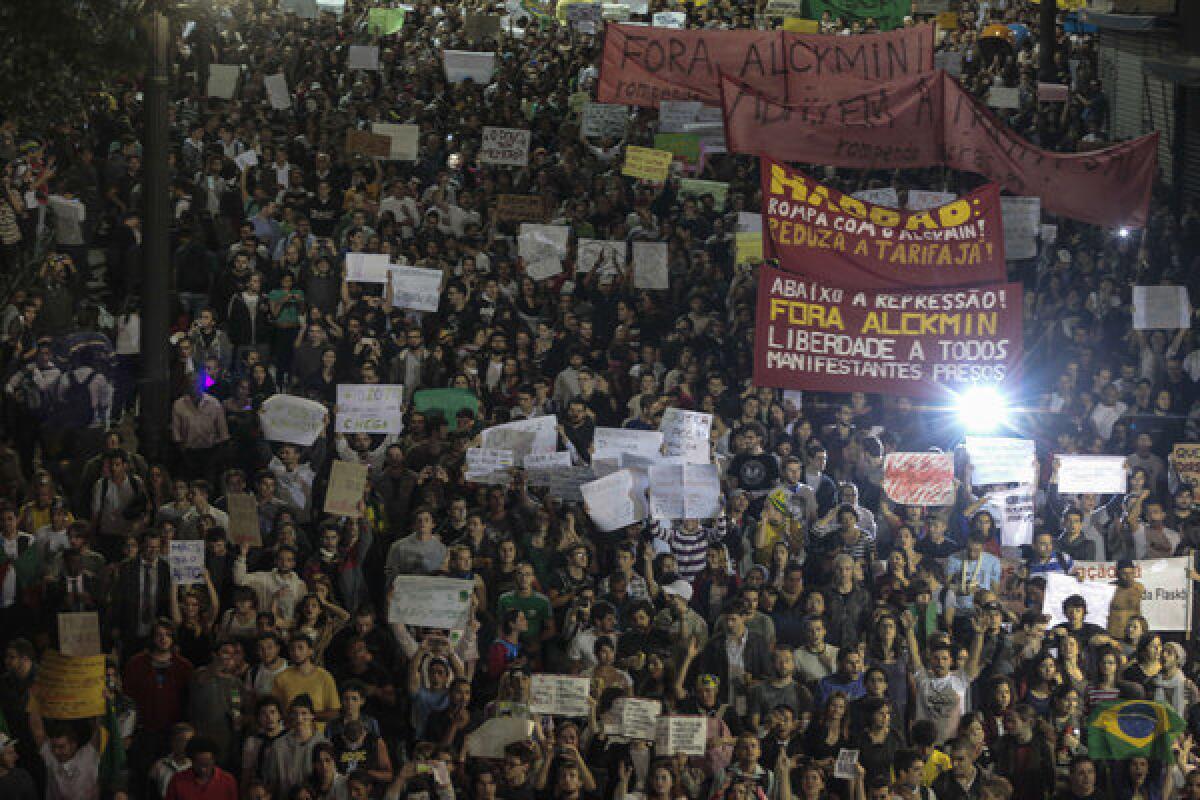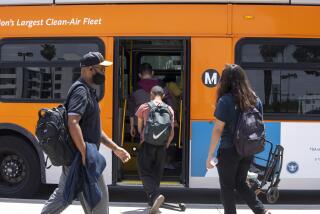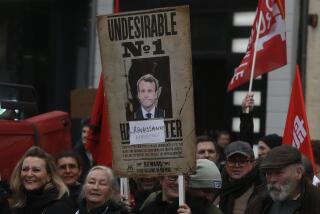Protests continue in Brazil as thousands rally in Sao Paulo

- Share via
An estimated 50,000 people took to the streets of Sao Paulo on Tuesday, continuing protests in Brazil aimed at lowering public bus fares and improving public services.
The Free Fare Movement behind the protests said it would stay on the streets until the Sao Paulo government revoked a recent bus fare increase of about 10 cents.
“Lower the bus fare, charge it to FIFA,” thousands chanted as they poured down the streets of South America’s largest city, referring to the international soccer association organizing the 2014 World Cup.
PHOTOS: Brazilians protest public transport costs
Mayor Fernando Haddad said he might also be willing to consider a reduction if that is what the population wants, and if he can raise funds some other way.
Earlier in the day, several cities announced reductions in bus fares as President Dilma Rousseff sought to ally herself with the largest protest movement the country has seen in two decades.
Rousseff said Brazil was proud of the protesters.
“Peaceful protests are legitimate and are proper for a democracy,” she said in Brasilia. “The voices on the streets want more -- more citizenship, more healthcare, more education, more transportation and more opportunities. I want to guarantee that my government also wants more.”
Support for the Free Fare Movement has grown since police fired rubber bullets and tear gas at marchers in Sao Paulo on Thursday and assaulted some participants and bystanders. Local media estimated that more than 200,000 people rallied Monday night in 12 cities.
Groups protesting government investments made in preparation for the 2014 World Cup, rather than in areas such as healthcare and education, have also held demonstrations and clashed with police.
“I’m on the street for transportation, education, healthcare and security,” said Rafael Ambrosio, who lives on the poor outskirts of Sao Paulo and blames the police for crime and violence. “They treat us like criminals.”
In response to the protests, the governments of Porto Alegre, Cuiaba, Recife and Joao Pessoa announced bus fare cuts of 2 cents to 5 cents Tuesday. During the protests Tuesday night, local media reported that Haddad was expected to discuss the protests with Rousseff.
ALSO:
Mali signs peace deal with Tuareg rebels
G-8 leaders vow to go after global tax cheats
Obama welcomes Taliban assent to Afghanistan talks
More to Read
Sign up for Essential California
The most important California stories and recommendations in your inbox every morning.
You may occasionally receive promotional content from the Los Angeles Times.










